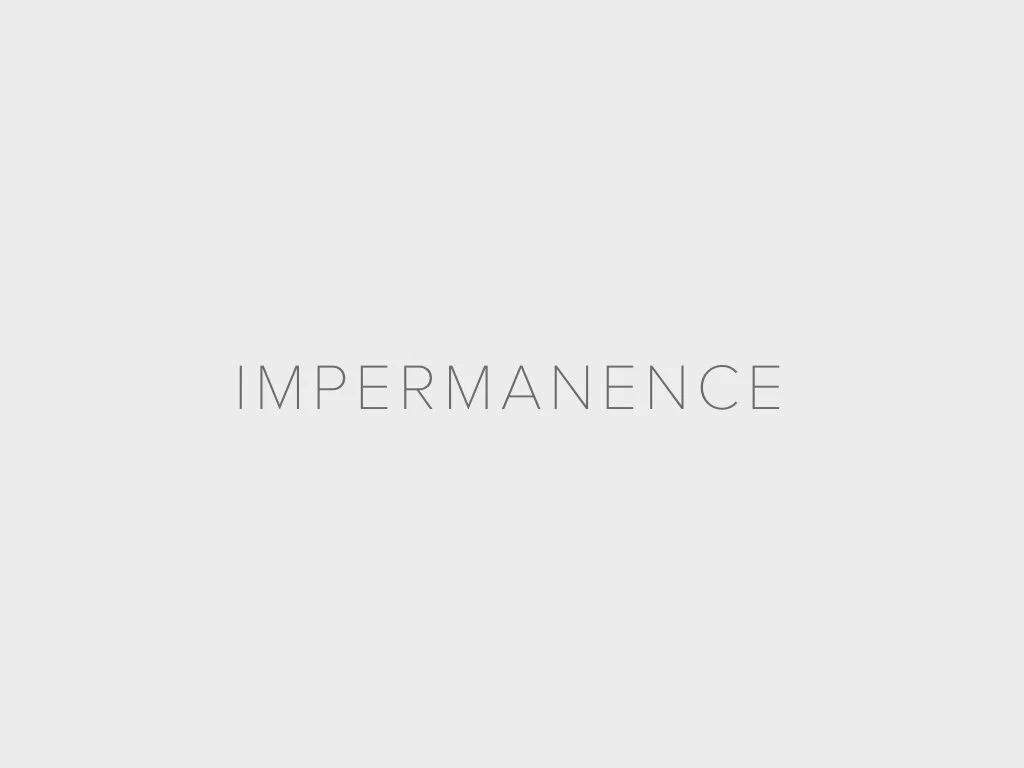IMPERMANENCE
“Earth, isn’t this what you want?
To arise in us, invisible?
Is it not your dream,
to enter us so wholly
there’s nothing left outside us to see?
What, if not transformation, is your deepest purpose?
Earth, my love,
I want that too.
Believe me,
no more of your springtimes are needed to win me over—
even one flower is more than enough.
Before I was named
I belonged to you.
I seek no other law
but yours, and know I can trust
the death you will bring.”
Dear Hadley,
Your gram gram died today.
She passed away peacefully at home, under the waning crescent moon—that small sliver of last lunar light before all goes dark. A moment of surrender in the sky and below; the end of a cycle.
The words of poet Elizabeth Alexander just flashed through my head: “on the brink, on the brim, on the cusp.”
You were lucky to know your great-grandma for so many years. When her beloved dog died this past April, you drew a picture of Annie as a canine angel. Above it you wrote “I hope Annie is in a better place where she is not in pain.”
I know you will always remember her. I also know that early memories fade—they become less tangible, more blurry and dreamlike with time. Specifics lose their sharpness. My grandpa died when I was six and I mostly remember him now as a feeling. A hazy, cozy warmth. So I thought writing to you about grandma might help bring clarity to anything that later feels fuzzy. Maybe a deeper understanding who she was will help you more deeply understand who you are. That certainly has been the case for me.
Grandma was my favorite person.
She was grounded, rooted, present. It was as if the garden in which she spent so much time—kneeling on the damp soil, pulling the weeds and tending to the flowers—had seeped through her skin and into her bones. The earth had, as Rilke said, entered her so wholly.
Immune to the trivial and the superficial, she delighted in the natural world. She marveled at the changing seasons, the coming and going of birds and buds. She was filled with awe and appreciation. She was a reminder.
Grandma was a woman of uncommon clarity. Independent and self-assured, she lived a quiet life of her own determination. Her husband, Cass (my grandpa, your great-grandpa) died almost thirty years ago. So for most of my life, I knew my grandma as a single, self-sufficient woman (when I asked her if she dated other men after grandpa died, she said, “I saw a few men, but I loved your grandpa so much, I never felt I needed another.”). She lived beautifully, graciously, and according to her own principles and preferences (of which she had many).
Grandma was particular. So particular. She liked things the way she liked them and she did things the way she did them and that was that. She was thoughtful and she was clear. To be in her presence was to be reminded of your own autonomy, your own capacity for choice, delight, distaste.
I loved to be in her presence.
Her inner compass was muscular. The opinions of others had no bearing on her—she was not easily (or ever) swayed. And, being full of understanding and patience and love, she didn’t flinch when the people around her had and held their own sets of beliefs. Your gram gram was generous with her grace. She was confident and self-assured—just like you, Miss H.
I sat at her bedside this week, holding her hard-working, sun-spotted hands as her breathing slowed.
She lived her final days at home, exactly as she had so adamantly insisted. When she could no longer keep her body going, her daughters tucked her into bed, under her familiar crisp sheets with little teal and purple flowers on them. There were fresh flowers on her bedside table, fresh cut lavender from her garden tucked into the pocket of her cotton nightgown. Her skin was soft and smooth. She was comfortable and without pain. She was perfect.
Your mom and I stopped by one evening to give grandma a kiss goodnight (each time I visited her these past few days, I said goodbye, just in case. But, in keeping with her character, Grandma continued to hang on for as long as she possibly could—days beyond what anyone imagined). When we saw her that night, she was unresponsive. Her eyelids were sealed shut, her chest only rising lightly as she took in small gasps of air through her mouth. We sat on either side of her bed, running our fingers through her hair and stroking her dewy cheeks. Your mom said, “I’ve never really studied Grandma’s face before. She’s just so beautiful.”
Grandma was a beautiful woman. She had a certain elegance, a defined way about her that was stunning. But this week, as she entered her final days, she looked more beautiful than I can ever remember.
We were lucky to have that time with her. Lucky to have a chance to just watch and witness. My heart is full, grateful.
Grandma loved you, Had. She loved you and your siblings and all her great-grandkids. When I talked to her recently she described you as “just terrific.” Though the exact words matter less than the way she looked when she said it—her bright eyes sparkled, her whole face smiled. As her body slowed and her energy waned over the past few years, one of her great joys was simply being in the same room as you, Aiden, and Emerson. She loved watching you three race around, chatting and laughing and playing.
It is not lost on me how lucky I am to have had so many years with Grandma—my sweet and strong, private and particular, generous and gracious, Aggy Baby.
Hold her in your heart as you walk through this wild world, Had. And when you face situations in life where you wonder if you should waver from what your insides tell you is true, I hope you think of her. And stand your ground.
I love you Hadley.
L
—
Here is a favorite snippet from Anne Lamott’s incomparable Bird by Bird that sheds beautiful light grandma’s favorite place, the garden:
The garden is one of the two great metaphors for humanity. The garden is about life and beauty and the impermanence of all living things. The garden is about feeding your children, providing food for the tribe. It’s part of an urgent territorial drive that we can probably trace back to animals storing food. It’s a competitive display mechanism, like having a prize bull, this greed for the best tomatoes and English tea roses. It’s about winning; about providing society with superior things; and about proving that you have taste, and good values, and you work hard. And what a wonderful relief, every so often, to know who the enemy is. Because in the garden, the enemy is everything: the aphids, the weather, time. And so you pour yourself into it, care so much, and see up close so much birth, and growth, and beauty, and danger, and triumph. And then everything dies anyway, right? But you just keep doing it.
—
Here is a favorite Mary Oliver poem that has long reminded me of your gram gram:
The Bleeding-Heart
I know a bleeding-heart plant that has thrived for sixty years if not more, and has never missed a spring without rising and spreading itself into a glossy bush, with many small red hearts dangling. Don’t you think that deserves a little thought? The woman who planted it has been gone for a long time, and everyone who saw it in that time has also died or moved away and so, like so many stories, this one can’t get finished properly. Most things that are important, have you noticed, lack a certain neatness. More delicious, anyway, is to remember my grandmother’s pleasure when the dissolve of winter was over and the green knobs appeared and began to rise, and to create their many hearts. One would say she was a simple woman, made happy by simple things. I think that was true. And more often that once, in my long life, I have wished to be her.
You and Gram Gram, out for a wheelchair ride.



